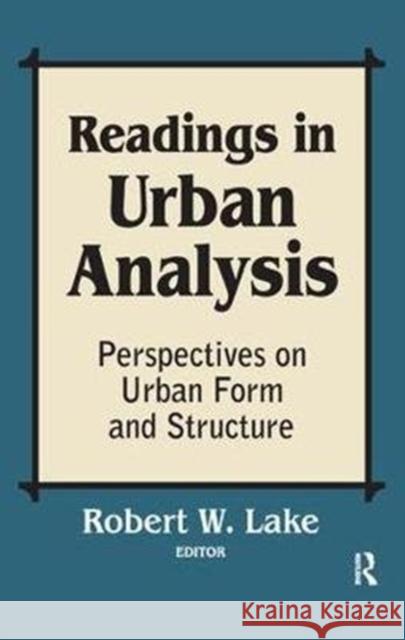Readings in Urban Analysis: Perspectives on Urban Form and Structure » książka
topmenu
Readings in Urban Analysis: Perspectives on Urban Form and Structure
ISBN-13: 9781138531475 / Angielski / Twarda / 2017 / 341 str.
Readings in Urban Analysis: Perspectives on Urban Form and Structure
ISBN-13: 9781138531475 / Angielski / Twarda / 2017 / 341 str.
cena 754,51
(netto: 718,58 VAT: 5%)
Najniższa cena z 30 dni: 654,86
(netto: 718,58 VAT: 5%)
Najniższa cena z 30 dni: 654,86
Termin realizacji zamówienia:
ok. 16-18 dni roboczych.
ok. 16-18 dni roboczych.
Darmowa dostawa!
This important work brings together a range of perspectives in contemporary urban analysis











